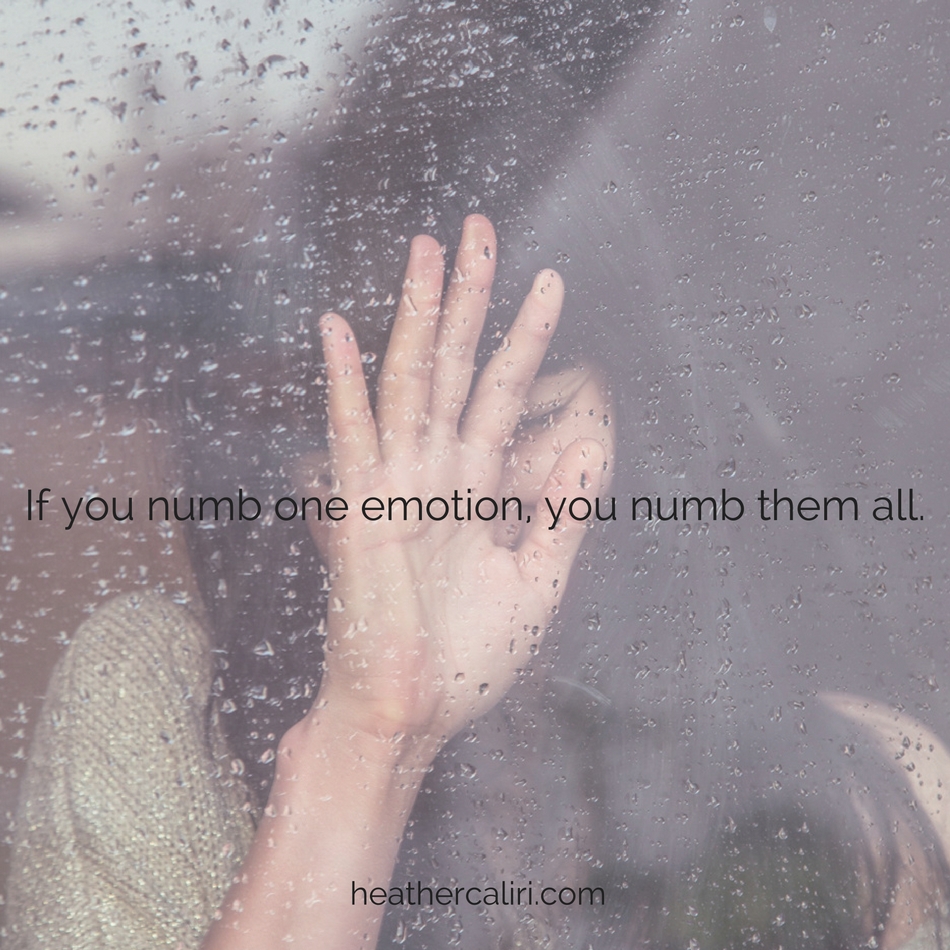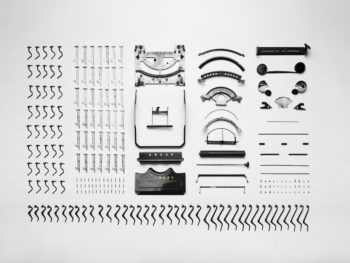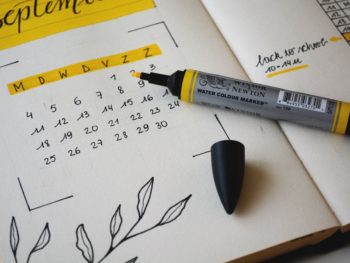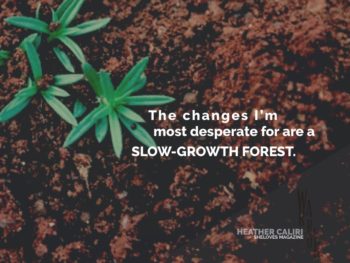
Do you struggle to cry? Do you stand above your life sometimes at crucial moments and feel as if the emotions you’re feeling are like water running below you, while you’re up on a bridge, watching them rush away? And you think, Wait, shouldn’t I feel like crying right now?
Someone please tell me I’m not the only one who has felt this way.
The first time I realized I struggled to cry was my freshman year of high school. My sister Katie and I went to see a movie—My Life, with Michael Keaton and Nicole Kidman.
I just looked it up on Rotten Tomatoes: 33%. Yes, it was pretty sappy.
It also changed my life.
Why I Identified With a Middle-Aged Jerk
The movie’s about a jerk named Bob Jones (Keaton) who discovers he has terminal cancer. He decides to make a movie about his life for his still in-utero child, and discovers that no one has anything nice to say to him. He has treated people terribly; even his wife (Nicole Kidman), though she loves him, struggles to say kind things on-camera.
Keaton’s character tries to figure out how to change his life before he dies. And though his cancer kills him, he ends the movie completely alive.
I rarely cried at movies back then; this time was an exception. I bawled. When Katie and I got home, and I told her how much I’d connected with Keaton’s character, she looked at me strangely.
He was an asshole middle-aged public-relations ad executive who suffered from terminal cancer.
I was a goody-two-shoes thirteen-year-old girl in perfect health.
Where, exactly, was the parallel?
It’s this: Keaton realizes that he is not at peace with his family, and as a result, he’s shut down emotionally. Only by healing those relationships does he find freedom.
I didn’t exactly realize why the movie spoke to me as a teenager, but the story fits me like a glove.
I remember telling my sister that the movie gave me hope. “I never cry,” I said. “It worries me. It’s like I don’t really feel things. But this story helped me feel something.”
Back then, I thought of myself as kind of hard-hearted. Aloof. I hated it, but I thought it was just my nature.
Turns out it was nothing of the sort.
How I Found My Tears
Twenty-five years later, I cry at everything. Blog posts. Movies. Friends’ stories. Books. I cry when I write, and I cry when I explain stuff to my kids, and I cry when I share a story with my husband.
Turns out I’m a crier. I’m rarely aloof about anything.
But I still spent more than a decade of my life not remembering how to cry.
It was a long journey to crying again. A lot else has changed in my emotional landscape, but learning to cry again has always seemed foundational. Until I learned to cry again, I never really felt like myself—my sensitive, emotional self.
The very first step to getting back my tears was this:
After college, I went to my first therapy appointment, and my therapist told me she thought I was angry.
I realized I was. No, not just angry, but so enraged I had a molten fireball in my chest.
It’s pretty inconvenient to walk around with a molten fire-ball in your chest. It’s like discovering your car is on fire, but you still have to use it to get to work and Trader Joe’s. As you drive around, you just hope you don’t explode in front of God and everyone.
Driving around with a car on fire is terrifying and embarrassing.
So I get why most of us tiptoe around our lives, never really leaning into any emotion. There’s so much at stake. It is embarrassing to really feel all the crap we’ve been shoving down.
What We Lose When We Don’t Cry
But losing our tears has a steep price.
Until I learned how to feel anger—and all those other pesky dark emotions—I could not begin to feel joy, or peace, or true connection. As Brené Brown says over and over, if you numb one thing, you numb everything.
And until I was able to feel my own pain, I also could not really empathize with other people. When I turned off my tears, how could I possibly sit with someone who wept?
Look, not all of us are emotionally sensitive like me—and that’s awesome. Probably you and I won’t cry at the same stuff, nor should we. But it’s worth asking yourself: are there emotions I shut down? Are there emotions that feel scary in public or in front of my family? Are there emotions that aren’t okay for a mother or believer or American or father or child to feel? Do I ever stand outside myself at a difficult moment, casually observing my emotions from afar? Is there any disconnect in your heart?
Did you once cry, but now have stopped?
Why? What have you lost in the process?
How do you get started? I’m a big fan of journaling: writing yourself letters, and exploring the questions you’re afraid to ask.
Crying doesn’t always feel great. It can be embarrassing to break down in tears, and painful to feel our grief. But it also feels alive. And it’s far better than realizing you’re less than fully inhabiting your life.














 I’m Thankful for My Grief About the Election: For The Mudroom
I’m Thankful for My Grief About the Election: For The Mudroom
Love this Heather! I too have discovered greater depths of my own emotions as an adult. There are so many reasons why we keep the tears at bay, but they’re so healing! And not just for ourselves but others too.
Yes–tears are like magic. I’m so thankful to finally be a person that can shed them when I need to.
This post made me squirm a little. 😬 So much good stuff here.
I hope in a good way? I’m curious–what felt squirmy to you?
😬 I bite back the tears often, I never thought about what that could be doing to my other emotions. So I felt a bit called out. I will try to just let them flow next time…but I bit worried they won’t stop. 😂 Like a dam..
Oh, dear one, I’m sorry. Praying that you have the space and safety to do that when you can.
If it makes you feel better I stopped wearing mascara to church because it’s racoon eyes every time.
Actually, wait, I’m not arguing my case very well here 😛
I’m a cryer. Daddy never liked tears so crying has always seemed weak to me and most of my life I’ve struggled to hold them back. I still do at times. My husband has never had a problem with my tears and that’s what reminds me he is just the person for me. Thanks for your affirmation of the importance of accepting our emotions.
It’s lovely when the people around us help us become more ourselves. Love this, Debby.
I had to let this sit for a few days. But I immediately identified with “If you numb one emotion, you numb them all.” I wasn’t allowed to cry when I was a kid. I was told if I didn’t get a hold of myself, I would be given something to cry about. Looking back, that was only said when I was crying because I was being punished or I was mad and lashing out. But I applied that across the board and taught myself to shut down. Stuff and suppress. Which you can only do for so long before it explodes out, particularly during puberty. (haha) But it was during those teenage years when I discovered the magic of alcohol and spend the next 28 years numbing and escaping. And my goodness, when I got sober everything I’d bottled up for decades came out. I have learned that crying goes a long way towards healing. After my mom died last summer, and I started going through all the old photos, I ran across a book one of my cousins had written chronicling her grandpa’s preaching ministry. Her grandpa was my uncle, and one of my dad’s brothers who died when I was 12. I looked through the photos she had put in and just bawled. I had never grieved his death. There were other photos of other aunts and uncles birthdays with groups photos, and again, It was like a dam broke because I never grieved most of them. It’s still almost automatic for me to start to shut down when I start feeling an uncomfortable emotion, but I’m slowly learning that it is ok to cry. Even in public. 🙂
I had a similar moment when I finally grieved my brother and sister getting sent away. it was like a volcano of tears. But man, I felt so much better afterwards–much more able to be kind to myself.